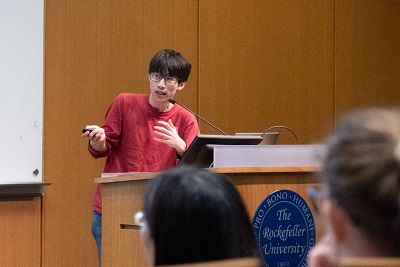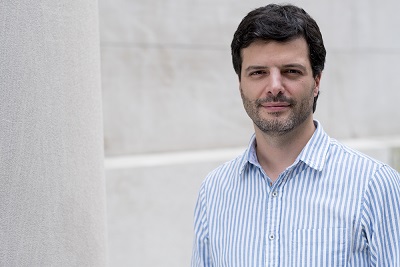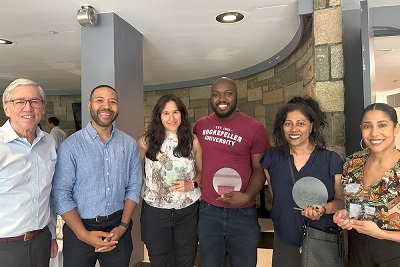Mary E. Hatten and Daniel Kronauer honored with teaching awards
by Alexandra MacWade, assistant editor
Mary E. Hatten, Frederick P. Rose Professor and head of the Laboratory of Developmental Neurobiology, and Daniel Kronauer, assistant professor and head of the Laboratory of Social Evolution and Behavior, were honored at this year’s Convocation luncheon with Distinguished Teaching Awards.
Dr. Hatten, who studies the development of cellular architecture in the mammalian brain, has been teaching a course in central nervous system development for the past 20 years. Popular with both Rockefeller and Weill Cornell Medicine graduate students, the biennial course places a particular emphasis on the molecular mechanisms of cell patterning in the brain.
In Dr. Kronauer’s course, Genetics and Evolution, students learn about basic genetic mechanisms, including the generation of mutations and genetic segregation, linkage, and recombination. Dr. Kronauer, who studies evolution in insect societies, has taught the course annually with Fred Cross since 2013.
He also teaches Social Evolution and Behavior, held at Rockefeller’s Center for Field Research in Ethology and Ecology in Millbrook, New York. This one-week intensive course—which Dr. Kronauer structures as a collaboration between 20 students and 10 faculty members from Rockefeller, Memorial Sloan Kettering, the University of Massachusetts Amherst, the University of Pennsylvania, Princeton University, and the New Jersey Institute of Technology—was first offered in 2014 and is being given again this summer. Participants attend lectures and field outings, conduct workshops, and give presentations. The course explores societies from a variety of angles, including genetics, behavioral ecology, ethology, neuroscience, and evolutionary and theoretical biology.
The annual Distinguished Teaching Awards were established in 2005 to recognize outstanding individual contributions to the university’s educational environment. The winners, who receive a plaque and a monetary gift, are chosen by a committee that includes the university’s scientific executive officers.


